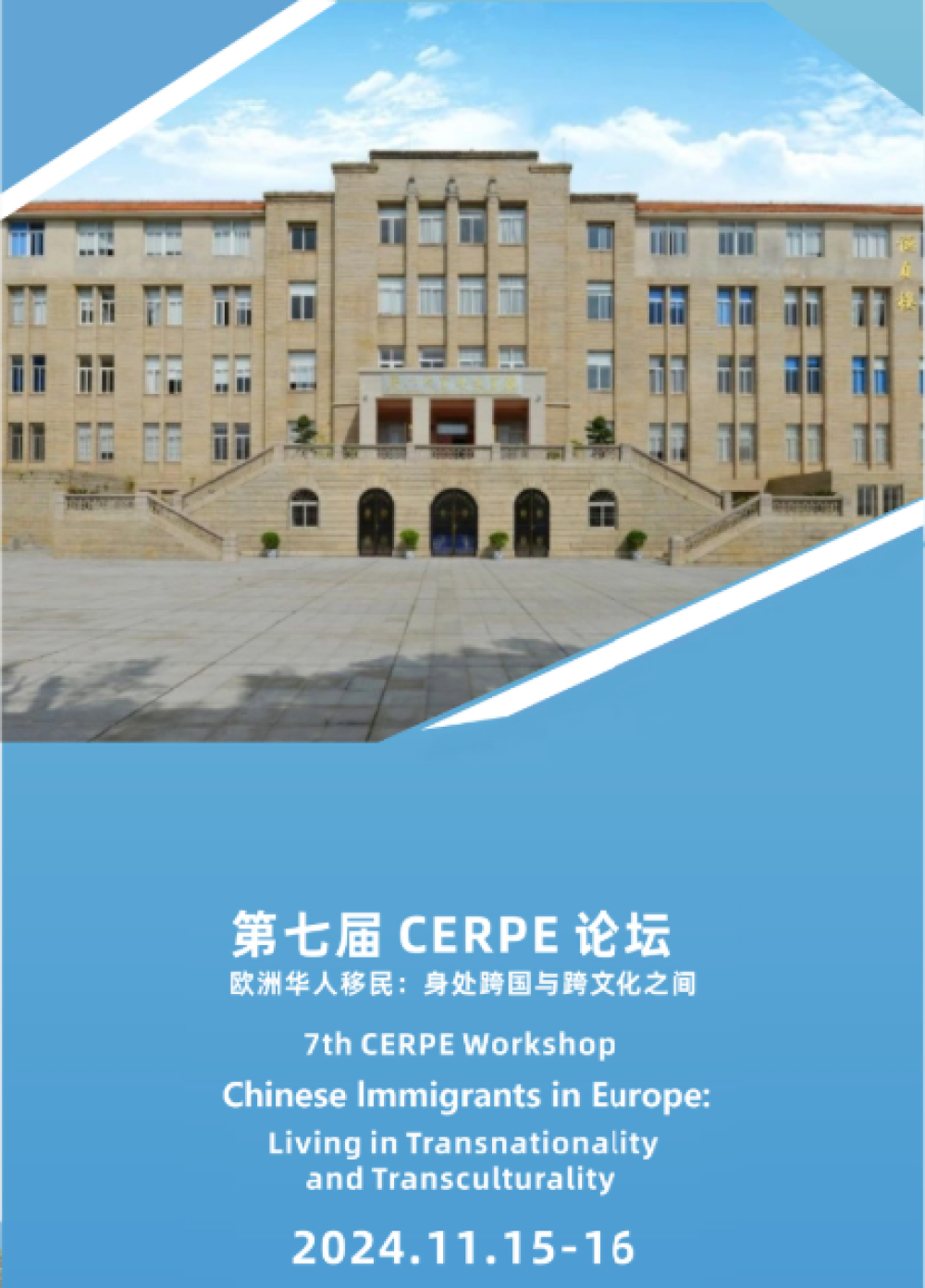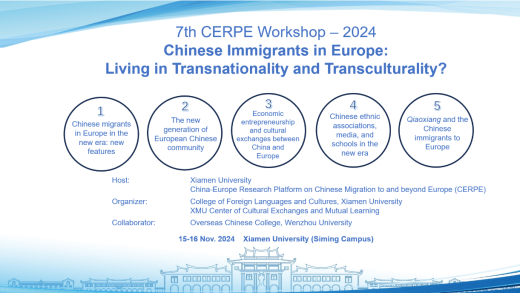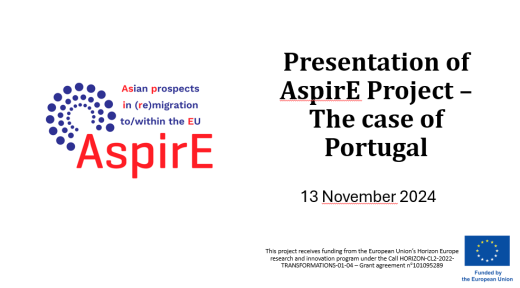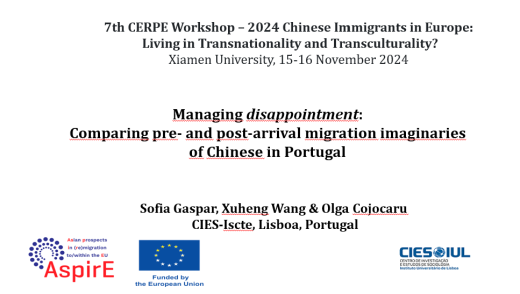News
Portugal findings presented at the 7th CERPE Workshop in China
13 November 2024

The 7th China-Europe Research Platform on Chinese Migration to and Beyond Europe (CERPE) invited scholars and researchers to present their work on migration between Europe and China following the COVID-19 pandemic, focusing on the evolving landscape shaped by subsequent political and economic developments. In this new context, migration dynamics from China to Europe, particularly regarding transnationalism and transculturality, have undergone significant shifts. These changes bring both challenges and opportunities for Chinese migrants in Europe. The workshop aims to delve into this migration phenomenon's emerging characteristics and explore the underlying forces driving these developments.
Sofia Gaspar, Carol Wang, and Olga Cojocaru gave a presentation entitled "Managing disappointment: Comparing pre- and post-arrival migration imaginaries of Chinese in Portugal" during which they examined how the migration flows of people between China and Portugal have shaped several pathways of overlapping mobility channels for ‘privileged’ middle-classes, such as Golden Visas, D7 passive income policy, and international student mobility. The pre-arrival imaginaries of Portugal as a ‘desirable destination’ for these Asian citizens have been moulded by meso-level actors (migration intermediaries, lawyers, real estate brokers, among others) who create an ideal image of Portugal as a ‘safe paradise’ with affordable living costs, good climate conditions, and a comfortable lifestyle place for their families and children. However, after their arrival, some of these Chinese migrants reveal a deep disillusion with their previous expectations, mostly related to the high costs of living, housing prices, and inefficiency of the immigration Government agencies. Based on 27 semi-structured interviews and 9 video diaries recorded by middle-class Chinese of both genders between their 20s and 50s and residing in Portugal, the aim was to analyse how they emotionally navigate between prior expectations of ‘finding a better life’ before moving and their disappointment after settling in Portugal. Against the marketisation of Portugal’s image as a lifestyle ‘paradise’, their narratives reveal resilience to disenchantment and broken expectations as well as resolved agency to manage the discrepancies between pre-arrival imaginaries and the reality on the ground, and therefore trying to integrate and overcome their social and personal difficulties.
The workshop aims to facilitate intellectual exchange and dialogue among scholars specialising in Chinese migration studies to Europe, and it seeks to bridge connections between the CERPE network and broader migration research communities, fostering interdisciplinary collaborations and knowledge-sharing. We are delighted that the AspirE project, represented by the ISCTE team, had the opportunity to participate in this event!
Read more about this HERE.


